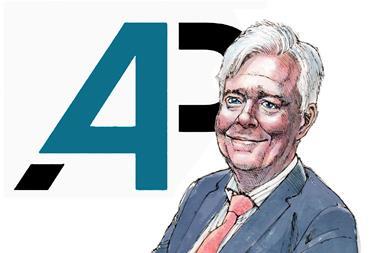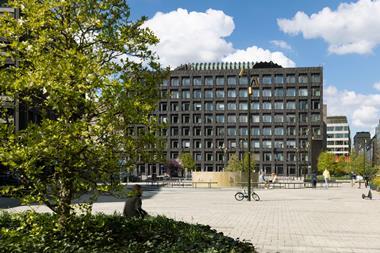Sweden’s big two occupational pension providers, Alecta and AMF, today reported investment losses for last year in single-digit percentages, but the firms also said they had been able to improve pensions for their members during the year through measures such as inflation-proofing and bolstering guarantees.
Releasing 2022 results, AMF announced a total return of -8.6%, and a fall in group assets to SEK734bn (€65.9bn) at the end of December from SEK850bn a year before.
Tomas Flodén, AMF’s head of asset management, said: “Despite a certain recovery in the financial market during the last quarter of the year, the year’s total return was negative.”
To a large extent, he said, the investment result had been pulled down by the weak development on the world’s stock markets, and especially AMF’s large exposure to Swedish companies.
“We are long-term owners of these companies and believe that over time they will provide a good return,” Flodén said.
However, he said the overall investment losses had been moderated by the firm’s investments in real estate and alternative assets, which had a positive return during the year.
“The latter shows the value of the strategic restructuring of our life portfolio that we have carried out over the past 10 years, where we have successively increased the proportion of unlisted assets such as real estate, forestry, energy and infrastructure in our life portfolio,” Flodén said.
Johan Sidenmark, AMF’s chief executive officer, said that during the year, AMF had “increased security for half a million savers through strengthened guarantees”.
The company’s solvency ratio for its traditional pensions dipped to 228% by the end of 2022 from 232% at the start of the year, AMF said.
Alecta’s solvency rises as DB liabilties shrink
In its financial report for 2022 published this morning, Alecta said the return on its defined contribution (DC) product, Alecta Optimal Pension, had been -9.8% for the year, for the default portfolio with a 60% equities weighting.
Overall, the group’s assets diminished to SEK1.15bn from SEK1.23bn, the Stockholm-based pension fund reported, although its solvency ratio increased to 218% from 201% over the 12 months.
Assets under management for the DC portfolio were little changed at the end of the year, at SEK225bn from SEK227bn at the end of 2021, it reported.
In the larger defined benefit (DB) side of Alecta’s pensions business, total assets slipped to SEK928bn from SEK1.0trn, it said, with the investment return at -7.4% for 2022.
Magnus Billing, Alecta’s CEO, said 2022 had been a year unfortunately remembered for the ongoing war in Ukraine.
“The war affected, and continues to affect, also the economies in other Europe and the development of the capital markets, and is one of the reasons for rising inflation and interest rates and falling stock markets,” he said.
But he added: “Alecta still had such a strong financial position that during the autumn we were able to inflation-proof our defined benefit pensions and increase them by almost 11% or 2023, and at the same time reduce the costs for the company by 40%.”
One reason why the financial position had developed well was rising interest rates during the period having reduced the present value of future commitments, Alecta said, but also cited its focus on cost efficiency and build-up of inflation-resistant investments.
“For a few years, Alecta has also worked to create a portfolio of assets that will be better able to withstand rising inflation as well as temporary stock market fluctuations,” the firm said.
To read the digital edition of IPE’s latest magazine click here





















